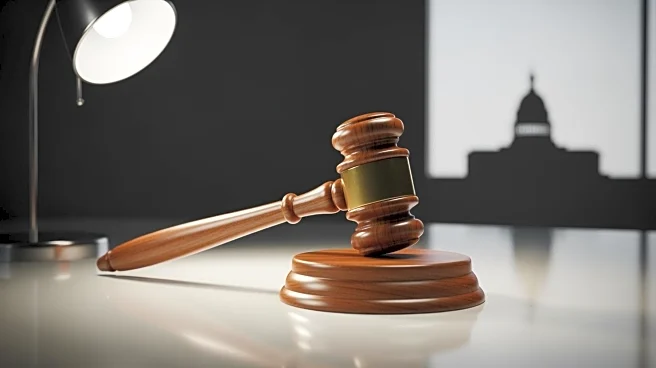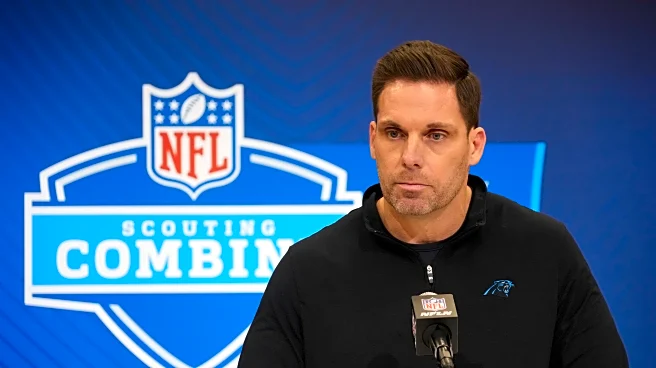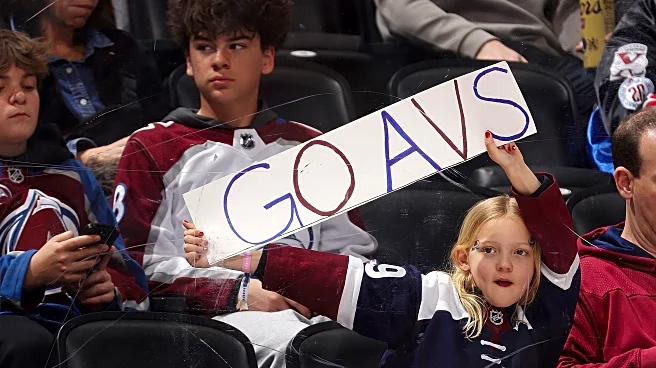What's Happening?
Speaker of the House Mike Johnson has acknowledged the need for a change in the Republican Party's strategy as the government shutdown enters its 22nd day, making it the second-longest in U.S. history.
Johnson has been reiterating the GOP's stance that Democrats are responsible for the shutdown, but he admitted that this messaging is becoming 'old.' Despite this, Johnson stated that House Republicans remain nearly unanimous in their refusal to negotiate with Democrats until the government is funded. The shutdown has surpassed 42% of the time allocated by the House-passed continuing resolution, which was intended to last until November 21. Johnson expressed concern over the dwindling time to complete appropriations, suggesting that a call for members to return might be imminent.
Why It's Important?
The prolonged government shutdown has significant implications for U.S. politics and public policy. It highlights the deep partisan divide in Congress, with Republicans and Democrats blaming each other for the impasse. The shutdown affects various government operations and services, potentially impacting millions of Americans who rely on federal programs. The situation also underscores the challenges in reaching bipartisan agreements, which are crucial for effective governance. The shutdown's resolution could influence public perception of both parties, as indicated by a Quinnipiac University poll showing that 45% of registered voters hold Republicans more responsible, while 39% blame Democrats.
What's Next?
As the shutdown continues, pressure is mounting on both parties to find a resolution. House Minority Leader Hakeem Jeffries has expressed hope for an end to the shutdown by the month's end but remains firm on his $1.5 trillion demands. The shutdown's resolution may hinge on negotiations between the parties, with potential concessions on healthcare and spending agreements. President Trump's upcoming international trip could further complicate negotiations, as Democrats criticize his lack of engagement in resolving the shutdown. The situation remains fluid, with potential shifts in strategy and calls for congressional action likely in the coming days.
Beyond the Headlines
The shutdown has broader implications beyond immediate political and economic impacts. It raises ethical questions about governance and the responsibility of elected officials to prioritize the needs of citizens over partisan interests. The prolonged impasse may erode public trust in government institutions and highlight the need for reforms to prevent future shutdowns. Additionally, the shutdown's impact on healthcare and other critical services could have long-term effects on societal well-being, emphasizing the importance of stable and effective government operations.










